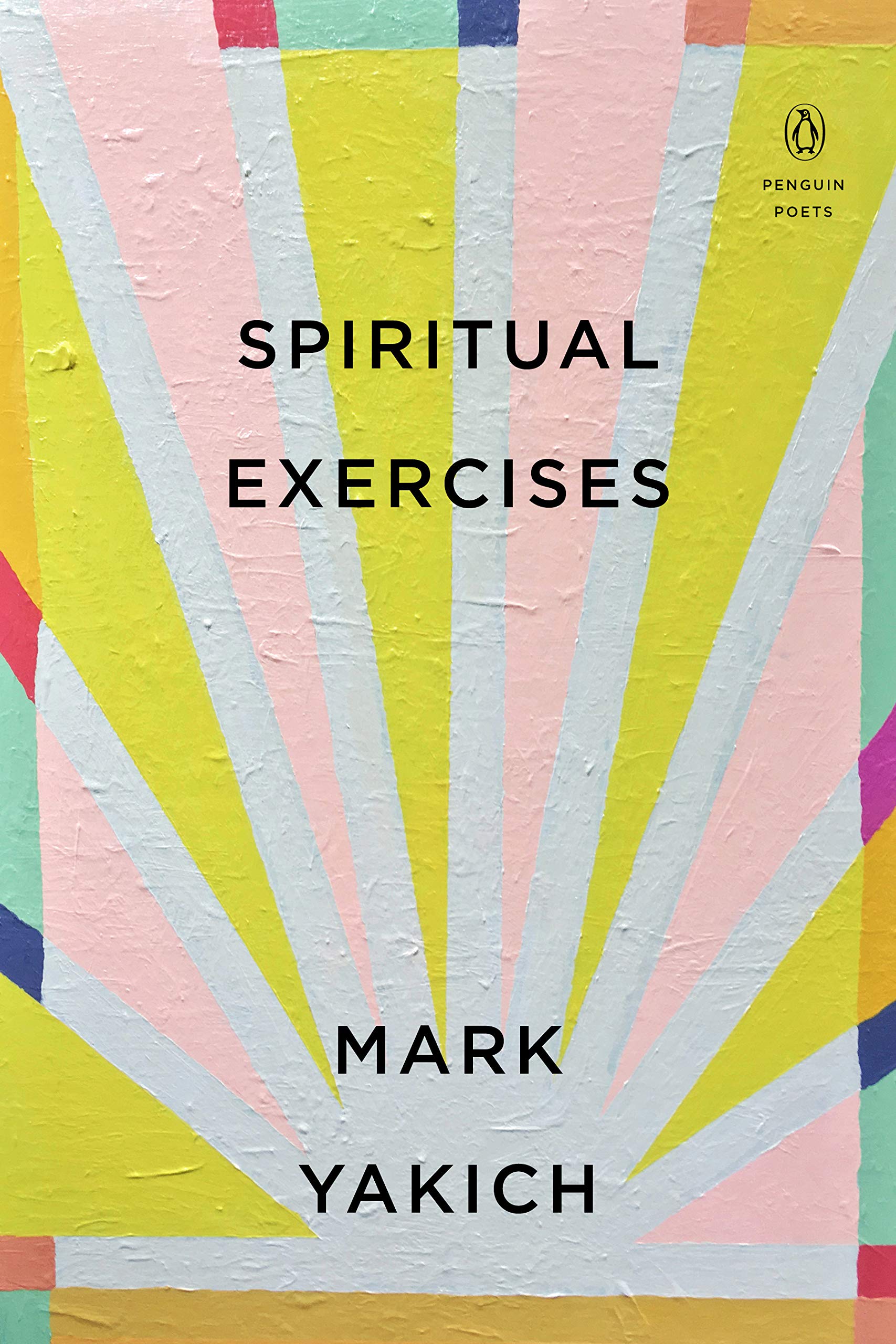I command my car only in German.I talk with my wife only in English.I scold our children only in Mandarin.When I hold our first graderIn my arms, as he falls asleep,I picture him clutching the deadVersion of me I’ll never see.My daughter—she’ll clutch himClutching me. My wife I can’tPicture. But she must be thereIn the background, breathingHard against a tree. When I go,I’ll remember us on vacation, ridingHere in the car, everyone lookingOut the windows, talking at once—Except me. That’s when I closeMy eyes, lift my hands just offThe wheel, and try to imagineA language without the world.
Consciousness
Mark Yakich
Feature Date
- September 7, 2019
Series
Selected By
Share This Poem
Print This Poem
From SPIRITUAL EXERCISES by MARK YAKICH
published by PENGUIN BOOKS
an imprint of Penguin Publishing Group
a division of Penguin Random House, LLC.
Copyright © 2019 by Mark Yakich
All rights reserved.
Reproduced by Poetry Daily with permission.
"'Tears often require technology' is just one of Yakich's canny observations in the spiritually pained and chilling poems of Spiritual Exercises. With an enviable spareness, these poems explore the conflux of faith and betrayal within the familial realm-- springing from the kind of honesty that may well scare some readers senseless."
—Cate Marvin
"St. Ignatius's Spiritual Exercises presuppose three kinds of thought: one from within, one from the good spirit, and one from the bad. Yakich's Spiritual Exercises adds a fourth kind-one that sees everything from a startling perspective, while gasping for breath."
—H. L. Hix
"Poets from George Herbert to Gerard Manley Hopkins turned to the spiritual exercises of sixteenth-century churchmen and mystics as models for their meditative poems. Yakich's wise, loving, and often wry new book draws on that tradition, and renews it. Readers will find themselves tracing the thread of life from birth to death and back again, with many revelations along the way."
—Susan Stewart
"Yakich is a poet of such violent tonal shifts that you feel the pulse of the human vibrating with all of its conundrums, contradictions, and longings—irony here becomes both poison and antidote, a homeopathic shot to help us navigate earthly and celestial tides."
—Catherine Barnett
"Spiritual questions are not theoretical for this poet, who counters separation and loss with an affectionate regard that is deepened instead of crushed by irony. And while generous parsimony sounds like it should be the name of a band, Yakich's poems are often brief yet remarkably full and complex, as if capturing an entirety in a breath or glance. I love this book."
—Bob Hicok
Poetry Daily Depends on You
With your support, we make reading the best contemporary poetry a treasured daily experience. Consider a contribution today.




